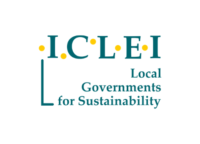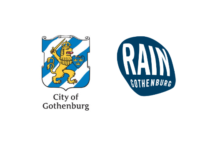As part of the Cultural Adaptations project, lead partner Creative Carbon Scotland, commissioned an independent evaluation to ensure that ‘lessons learned’ were effectively captured and shared.
Since the project came to an end on 31 March 2021, academics Chris Fremantle, a research fellow and lecturer at Gray’s School of Art (Robert Gordon University, Scotland) and Leslie Mabon, a lecturer in in environmental systems in the School of Engineering and Innovation at the UK’s Open University (based in Scotland), have been collaborating on their evaluation report. This week we saw the publication of Cultural Adaptations Lessons Learned Evaluation Report.
The combined expertise of Fremantle and Mabon delivers a comprehensive overview of context, the methodologies used, key questions, and findings. The authors also offer reflections and recommendations spanning sustainability organisations, and cultural organisations and embedded artists.
Mabon’s efforts were focused on evaluating the outcomes and lessons learned from the project from the perspective of climate change adaptation and sustainability organisations while Fremantle conducted his evaluation from the perspective of culture and cultural practitioners/organisations. Despite using discrete evaluation approaches, an important aspect for both was an agreed focus on what could be learned for other organisations undertaking similar activity in future. Thus, they ‘developed a common linked methodology and protocol’ (p.18).
Five key recommendations
By the end of the project and ensuing evaluation, Fremantle and Mabon had five firm recommendations for organisations wanting to embark on adaptation projects:
- There is a need for strategic partnerships between adaptation organisations and the cultural sector.
- There is a significant opportunity for arts and cultural organisations to engage with the adaptation agenda.
- The creative sector has significant potential in getting societal buy-in for the adaptation agenda, especially as ‘difficult conversations’ or intractable problems come to the fore as climate threats intensify.
- Building trust can be as valuable an outcome as the intervention itself, especially if there is limited history in the locality of collaboration between the cultural sector and adaptation or sustainability organisations. The significance of ‘quick wins’ or incremental progress should never be underestimated, even in the face of rhetoric of urgency on climate
- There is a need to explore the strategic implications of connecting the cultural and sustainability sectors at a European level.
Key literature and insightful examples of the cultural sector working or embracing climate change adaptation provide context for the report and its recommendations. The authors acknowledge that society is still getting to grips the concept of adaptation but they don’t hesitate to predict it will become a more significant feature of organisational planning. They also suggest that ‘there is ample scholarly evidence to illustrate that adaptation organisations (and, indeed, sustainability organisations) require a much broader set of competencies, knowledges and skill sets than purely technical and scientific knowledge of the effects of climate change and the measures that may be taken in response’ (p.12).
“I believe I speak on behalf of the partners when I say we are proud to claim this project as a success. We learned so much from each other and shared both positive and challenging experiences during Cultural Adaptations, but we know we’re on the right track. It’s very pleasing to read in this evaluation report from Chris Fremantle and Leslie Mabon that they agree. Like artists, academics think differently and they help us to think differently when we approach complex situations. We, at Creative Carbon Scotland, will certainly take on board their recommendations in future projects as I’m sure our partners will.
“I thank Chris and Leslie, wholeheartedly, for the clear, thoughtful and critical approach they have taken in this report, and for their enthusiastic and authentic contributions throughout the project.” Ben Twist, director of Creative Carbon Scotland.
Reference
Chris Fremantle and Leslie Mabon, Cultural Adaptations Lessons Learned Evaluation Report, 2021
Read the 'Lessons Learned' evaluation reportA three-minute summary of Cultural Adaptations
A note of reminder to all visitors: this website will remain in place until 2026 to support this project’s and its outputs’ continuing promotion, communication and dissemination. We hope you will use the contents, including our resources and toolkits, to combine creativity and adaptation for a sustainable future in your region.














